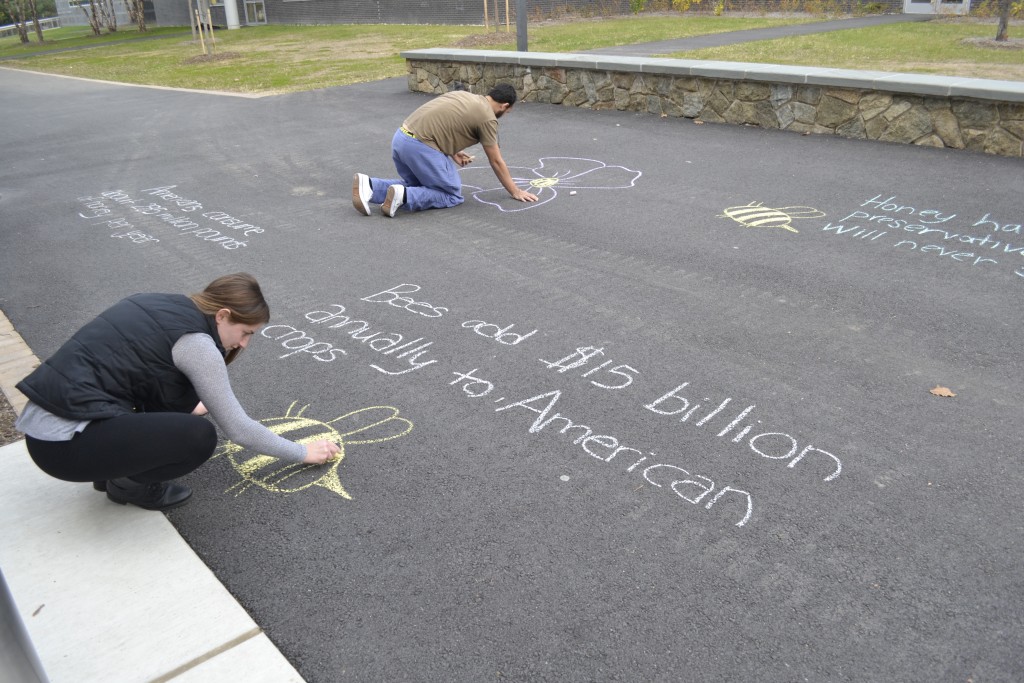
Photo by Jessica Musinski
Students of Professor Aytakin Asgarova’s Environmental Sociology class have launched a campus-wide campaign to spread awareness for climate change. The campaign covered a variety of topics including water levels, the ice caps, greenhouse gases and hurricanes. Known as “The Climate Keepers,” students in the class used chalk to write facts about these pressing matters on sidewalks around campus.
“Climate change is an important part of the world because whatever we do to the planet has consequences,” sophomore Jaise Vincent said.
The event also touched on the 22nd Conference of Parties of United Nations Framework Convention on Climate Change, also known as UNFCCC, which is happening currently in Marrakech, Morocco. Asgarova wanted her students to make a change in their own community and, as speculation into the environmental damage of the Pilgrim Pipeline began to surface, she thought that this was the perfect time to take a stand.
“The Pilgrim Pipeline would be built running through the semi-active fault line in the Ramapo Mountains. If there is an earthquake, it could rupture the pipeline and cause catastrophic damage to the ecosystem,” said sophomore Karlo Mendoza during an open discussion about the two 170 mile long pipes that would connect Albany, New York and Linden, New Jersey.
Students stood beside their quotations written on the pathways and fielded questions from people passing by. Supporters of the movement took pictures of the quotations and were told to use the hashtag #ItsGettingHotInHereRCNJ to share their thoughts and spread the word.
“It’s cool to see people’s reactions to this information. It reminds them that climate change is an important topic to be aware of,” sophomore Austin Rafuls said.
The event ended with the entire group and followers gathered at The Arch as Katherine Bush, one of the team leaders for the event, read off the mission statement of the campaign.
“We acknowledge that the Paris Agreement came into force on Nov. 4, 2016. As of today, 109 parties have ratified this global treaty on the national level,” Bush said. “We emphasize that ratification is not enough. Governments need to use immediate action to cutting carbon emissions and improving climate resilience for the people who are most vulnerable to climate change.”
Junior Eric Bartkowski, another team leader, also spoke.
“Our president-elect, Donald Trump, has stated many times that he denies climate change. From blaming the Chinese to doubting the legitimacy of climate scientists, Mr. Trump has given us a taste of what environmental policies will be like during his administration,” he said as he looked out over the crowd of fifty people. “We, as students, call upon our government to accept the Paris Agreement and create an effective climate policy that would lead to environmental and social justice.”
Professor Asgarova was impressed with her students work.
“I think we did a great job raising awareness for climate change. If we can change just one person’s mind and make one person more aware then we can make the environment better and the more people that do their part, the greater the effect has on the world.”
kferlita@ramapo.edu





